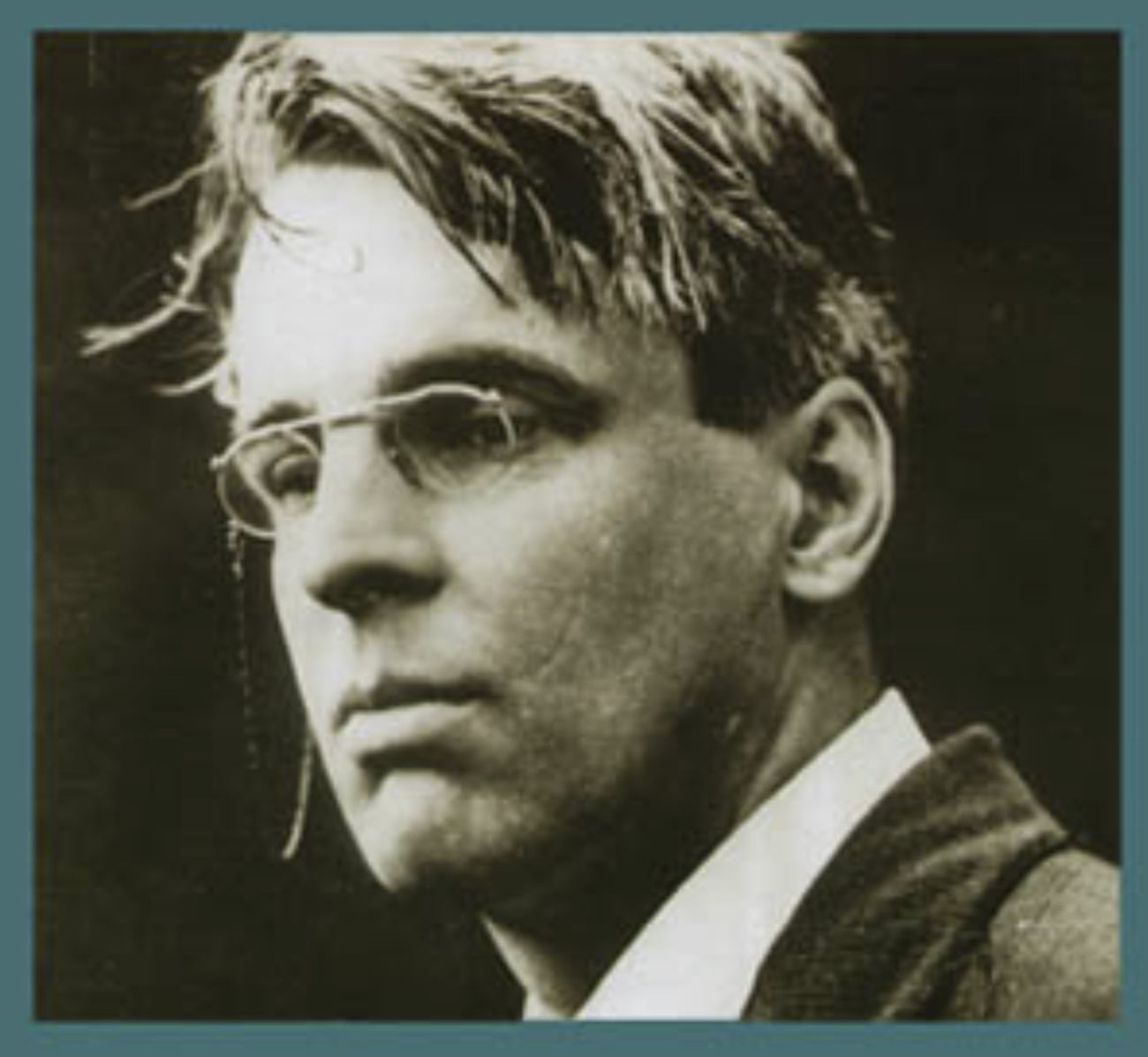
WILLIAM BUTLER YEATS
Sailing to Byzantium
BY WILLIAM BUTLER YEATS
I
That is no country for old men. The young
In one another’s arms, birds in the trees,
—Those dying generations—at their song,
The salmon-falls, the mackerel-crowded seas,
Fish, flesh, or fowl, commend all summer long
Whatever is begotten, born, and dies.
Caught in that sensual music all neglect
Monuments of unageing intellect.
Verso Bisanzio
TRADUZIONE DI EUGENIO MONTALE
I
Qui non c’è posto per i vecchi. Giovinetti e fanciulle
Nei loro abbracci, uccelli ai loro canti,
Generazioni in extremis, tonfi
Di salmoni ed il fiotto degli sgombri,
Tutto che vola o che si caccia o pesca
Nell’estate infinita, ciò che fu concepito
O nato o morto dentro la musica dei sensi
Non cura i monumenti dell’eterno intelletto.
II
An aged man is but a paltry thing,
A tattered coat upon a stick, unless
Soul clap its hands and sing, and louder sing
For every tatter in its mortal dress,
Nor is there singing school but studying
Monuments of its own magnificence;
And therefore I have sailed the seas and come
To the holy city of Byzantium.
II
L’uomo invecchiato non è che uno straccio,
Una logora veste su uno stecco
Se non esula l’anima e non batte le mani
A ogni sussulto del suo morale abito.
Non qui scuola di canto ma lo studio
Di monumenti d’alta magnitudine;
Ed è perciò che a vela alzate sono
Giunto alla città santa di Bisanzio.
III
O sages standing in God’s holy fire
As in the gold mosaic of a wall,
Come from the holy fire, perne in a gyre,
And be the singing-masters of my soul.
Consume my heart away; sick with desire
And fastened to a dying animal
It knows not what it is; and gather me
Into the artifice of eternity.
III
O voi saggi innalzati nel sacro fuoco
Come su un muro l’oro di un mosaico
Dal perno di un vorticoso fuoco uscite
E siate del mio cuore stanco dal desiderio
Ma incollato alla bestia che muore
Non sa nulla di sé; e voi raccoglietemi
Nel supremo artifizio dell’eterno.
IV
Once out of nature I shall never take
My bodily form from any natural thing,
But such a form as Grecian goldsmiths make
Of hammered gold and gold enamelling
To keep a drowsy Emperor awake;
Or set upon a golden bough to sing
To lords and ladies of Byzantium
Of what is past, or passing, or to come.
IV
Quando non sarò piú materia di natura
Non prenderò una forma corporale,
A nulla che sia della natura, ma
A quanto hanno saputo fare gli orafi greci
D’oro battuto e smalti per tener desti
Gli sbadigli di qualche imperatore;
E sarà che deposto su un ramo d’oro io canti
Ai signori e alle dame di Bisanzio
Ciò che fu, ciò che è o sta per essere.
Le opere più importanti di William Bulter Yeats (che vinse il Nobel nel 1923): “The Rose” (La Rosa, 1893), “ The Wind Among the Reeds “ (Il Vento tra le Canne, 1899), “In the Seven Woods” (Nei Sette Boschi, 1903), “The Green Helmet and Other Poems” (L’Elmo Verde e Altre Poesie, 1910)
“ Responsibilities” (Responsabilità, 1914), “A Vision” (1825), un’opera in prosa in cui espone le sue teorie filosofiche e poetiche, le raccolte “The Wild Swans at Coole” (I Cigni Selvatici a Coole, 1919), “Michael Robartes and the Dancer” (Michael Robartes e la Danzatrice, 1921), che include poesie famose come Easter 1916 (Pasqua 1916), scritta dopo la rivolta del 24 aprile 1916 per celebrare i leader della rivolta giustiziati dagli inglesi; “The Tower” (La Torre, 1928), “The Winding Stair and Other poems” (La Scala a Chiocciola e Altri Poemi, 1929).
